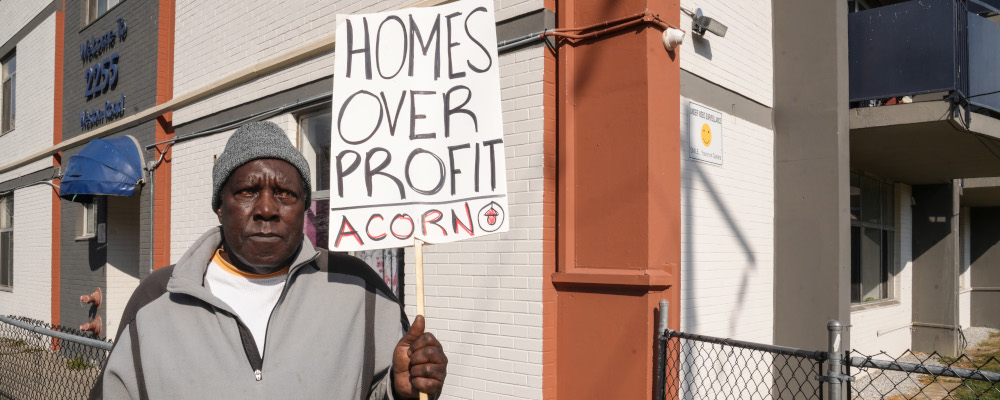Throughout Canada’s history, a humble yet profound dream has resonated: the belief that through diligent, honest work, one could secure a decent living and ensure a brighter future for their children. In the last few years, this dream has rapidly evaporated for countless young and new Canadians who find themselves on the wrong side of a housing crisis that saw prices nearly double between 2015 and 2022. Rents exploded by over 11 percent in 2023, continuing a decade-long trend of growth at twice the rate of inflation.
In the same timeframe, Canada’s real GDP per capita, a measure of economic activity per individual, has barely budged—and may be lower at the end of 2024 than in 2015. It means Canada has the poorest performance in the G7 and the second lowest among 35 OECD “wealthy” countries. Grimly, in 2022 the OECD predicted a generation-long stagnation, estimating this country would have the slowest per capita growth rate of members through 2060.
It should be unsurprising that Canada’s housing crisis and economic stagnation have occurred at the same time. The escalating cost of housing takes disposable income from the economy and stifles entrepreneurial activity by reducing risk-taking. No wonder Canadians are starting businesses at the lowest rate in decades.
These facts underscore a painful truth many Canadians already know: the diminishing hope among those left behind is a story of falling living standards. Canada faces a growing divide as society is segregated into two distinct classes: the affluent, property-owning class with considerable political and economic influence, and a new class of permanent tenants, for whom homeownership and long-term economic progress are out of reach.

Caught in a housing trap
The malaise plaguing Canada’s economy stems from a deep-rooted socioeconomic shift, simmering slowly for decades, and reminiscent of an era long past. While political discourse is mired in the dichotomy of progressivism versus conservatism, the nation is actually confronting challenges more archaic and insidious in nature, akin to a resurgence of the plague. This shift, increasingly evident, is towards a “neofeudalism” that eschews the overt symbols of aristocracy for a subtler yet potent form of elite dominance.
Feudalism, prevalent in medieval Europe from the 9th to the 15th centuries, was characterized by economic stagnation and a social system defined by personal relationships among the aristocracy, where legal status and rights were anchored in hereditary positions. Unlike this historical feudalism, where monarchs and the privileged nobility subjugated the masses through land ownership and serfdom, today’s “neofeudalism” operates through covert manipulations of regulatory frameworks and economic policy by a new class of aristocrats.
The chasm between property owners and everyone else left behind by the housing crisis has been driven by the actions of affluent residents and major landholders. These interests have for decades exerted their significant political influence over local and provincial land-use policies and usurped property rights. Engaging in NIMBYism, these elites have sought to inflate their property values and maintain neighbourhood exclusivity, leading them to advocate for restrictive development policies. Their decades-long sway over policy via deep political relationships has resulted in stringent growth regulations, rendering new housing development slow, prohibitively expensive, and dominated by big businesses. Consequently, the housing market has become increasingly inaccessible for younger and newer Canadians, furthering the growing chasm between owners and a burgeoning class of permanent tenants.
While provincial and local governments throttle supply, the federal government’s recent management of immigration (despite a recent shift in policy) has dramatically boosted demand for housing and accelerated rents. The last two years have seen an unplanned entry of over a million net temporary residents, particularly students, who have been exploited in low-wage work and by fraudulent educational institutions. The policies that led to this outcome were strongly advocated by influential business interests as a solution to labour shortages. The influx created a pool of low-wage labour for them to draw on, enabling them to forgo wage increases and investments in improved workforce productivity. While this benefits these businesses, it harms existing workers, undermines confidence in the immigration system, and hinders economic progress.
The intersection of economic and political power as common in feudal systems is highlighted by the increasing dominance of political dynasties like those represented by Justin Trudeau, Doug Ford, and Olivia Chow (Layton family) that manifest the emerging “neofeudalistic” structure of Canadian society. Doug Ford’s recent Greenbelt scandal, involving an opaque regulatory decision that conveniently favoured properties of a well-connected billionaire family is a blatant example of the entanglement. Their actions created an $8.3 billion dollar land value uplift, and while reversed due to public outcry, it demonstrates how politicians and economic winners covertly use the regulatory system against public interest.

The housing crisis: A symptom of Canada’s disease
This dark economic shift extends beyond the housing sector, permeating across Canada’s economy in areas such as finance, wealth management, insurance, telecom, agriculture, grocery, natural resources, and media. The terms “The Big 5” or “The Big 3” could refer to almost part of Canada’s oligopolized private economy and allude to our great socioeconomic challenge. Significant interests in too many of our national oligopolies are held by a select group of billionaires, centimillionaires, and their agents who use their extensive networks, associations, relationships, philanthropy, and political influence to gain regulatory favour.
This trend is facilitated by the growing complexity of technological society and our governing bureaucracy’s reflexive reliance on increased regulation to superficially “fix” complex problems. It overlooks the need for a systemic understanding of issues and the political execution of challenging reforms that would produce better results. The outcome is a regulatory system developed in collaboration with existing economic winners that justify new rules as “in the public interest” but instead create barriers to entry for competition. This process, called “regulatory capture,” has far-reaching effects on the Canadian economy. It has led to an environment that is counterproductive to innovation, equitable growth, investment, and our long-term prosperity.
Canada’s innovation and productivity hurdles, often attributed to a “conservative business culture,” are more accurately the result of decisions by rational actors in sectors insulated from competition. This “risk-averse” attitude and reluctance to invest are not inherent but stem from a lack of competitive necessity. There’s little incentive for businesses to undertake risky capital-intensive investments when their peers are equally reliably cautious and the threat from new entrants is low. This also explains the hesitancy of large Canadian firms to partner with domestic startups, unlike their American counterparts who actively engage with new ideas to stay ahead competitively.
Furthermore, the excuse of Canada’s “small domestic market” is similarly misleading. As the world’s 9th largest economy by nominal GDP with extensive trade agreements, Canada’s “small market” is instead a by-product of self-imposed constraints and regulatory barriers that protect domestic industries. For instance, inter-provincial trade barriers that exist due largely to the influence of special interest groups are estimated to raise the cost of goods by seven percent, impeding our economy’s full potential. Thus, Canada’s challenges in productivity and investment are not a result of a “conservative business mindset,” but rather a consequence of rational choices in private industry dominated by economic fiefdoms awarded by the government.

A detour from liberalism
Our faltering liberal economy, besieged by escalating housing costs and a lethargic private sector, is accompanied by an eroding standard of living. In Toronto and Vancouver, our most productive cities, exorbitant housing costs fueled by crippling growth restrictions are severely hampering labour mobility. This has profound repercussions for national wealth and our collective prosperity.
One study by the University of California, Berkeley, found that restrictive housing policies in just New York City and the San Francisco Bay Area, home to a mere 9 percent of the American population, slashed national income by 36 percent over 45 years. Translated to Canada, it amounts to a staggering annual loss of over $19,000 for the average Canadian worker. Given that the Greater Toronto and Vancouver areas account for over 30 percent of Canada’s population, coupled with the accelerating exodus of top talent to the United States, the economic toll on the country could be more severe.
Canada’s gradual shift towards neofeudalism marks a fundamental departure from the liberal democratic system that once fostered prosperity and opportunity through economic freedom and effective governance. This transition, characterized by an increasingly burdensome regulatory landscape ostensibly for public benefit, paradoxically shields a new aristocracy and jeopardizes our socioeconomic vitality. The quintessential belief that hard work leads to a good life, including homeownership, is faltering as family wealth evolves from helpful to indispensable for the next generations’ prosperity.
Like a dark past era, success in Canada is increasingly a product of inheritance and connections rather than merit, challenging a deep national myth that Canada is a free nation of free people. It requires a deep reevaluation of our systems and commitment to substantive reforms aimed at rejuvenating the Canadian dream and upholding our core values as a nation.




